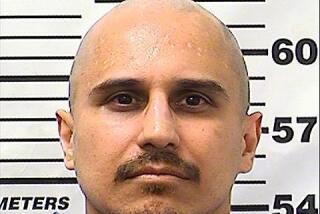Three-Strikes Law a Setback for Justice
The Times reported June 19 that a state appeals court has upheld the lengthy prison sentence a homeless parolee received under California’s three-strikes law (“Court Upholds 3-Strikes Term for Cookie Thief”). The sentence is a mandatory 25 years to life for the theft of four cookies.
Justice David G. Sills, writing a unanimous opinion, said a safecracker who cracks an empty safe is nonetheless a safecracker. This is true. But a safecracker who cracks a safe and steals nothing is not on the same plane as one who cracks a safe and steals $1 million. Both are guilty of violating the owner’s property, but the latter has imposed a much greater loss on the property owner.
As the court noted, the cookie thief is no saint. He would have stolen more had the restaurateur not protected his property with an alarm system. The alarm system not only minimized the property loss, it led to the apprehension of the thief. Because of its efficacy, the sentence is disproportionate to the actual crime committed.
The sentence is a violation of our sense of justice, going back to the Magna Carta. The 20th article of that momentous document, signed on June 15, 1215, laid the groundwork for proportionality of sentencing.
It said the punishment for a small offense should be according to the degree of the offense, and for a great crime according to the heinousness of it.
A terribly conceived three-strikes law and an appeals court blind to proportionality have thrown our system of jurisprudence back 800 years.
Bruce Crawford Fountain Valley
More to Read
Start your day right
Sign up for Essential California for news, features and recommendations from the L.A. Times and beyond in your inbox six days a week.
You may occasionally receive promotional content from the Los Angeles Times.






